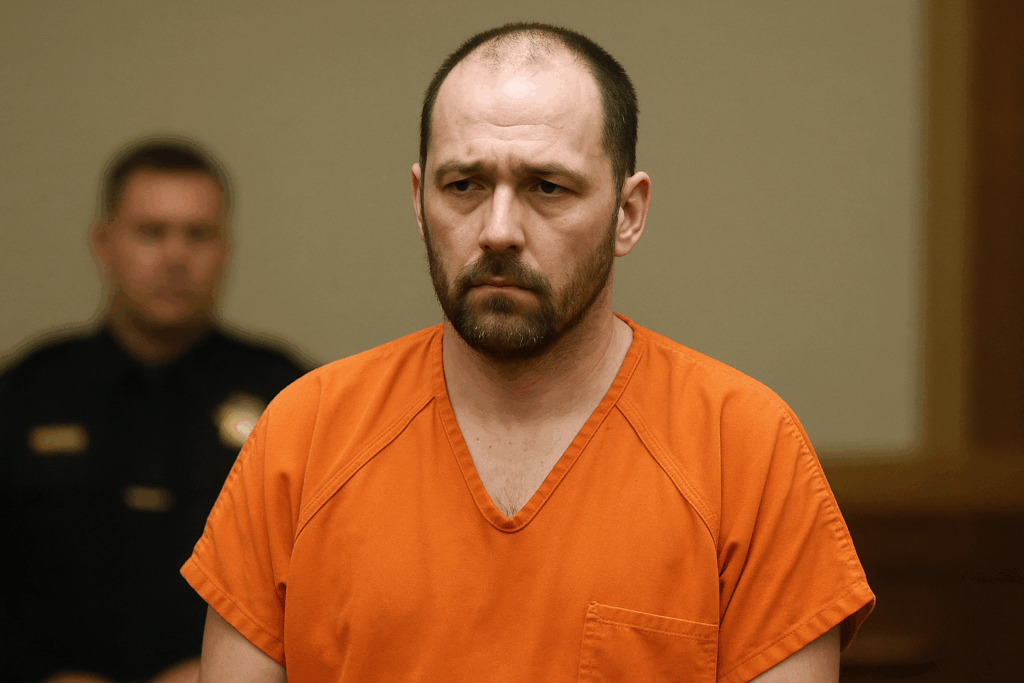Hours after the U.S. Supreme Court rejected his final appeals, Blaine Milam faced execution Thursday evening for the brutal 2008 killing of his girlfriend’s toddler daughter, a case prosecutors said involved days of torture carried out under the pretense of an “exorcism.”
Milam, 35, was sentenced to death for the murder of 13-month-old Amora Carson inside his Rusk County trailer in East Texas. Prosecutors alleged Milam beat the child with a hammer, strangled her, and inflicted bite marks and mutilations over a 30-hour period. A forensic pathologist testified that the injuries were so severe and numerous—including skull fractures, broken bones, and internal trauma—that “a specific cause of death could not be determined.”
The execution was scheduled for 6 p.m. CDT at the Huntsville Unit prison. At nearly the same time, Alabama prepared to execute Geoffrey West for a 1997 gas station murder. If both sentences were carried out, the nationwide total for 2025 would rise to 33, with Texas accounting for five and Florida leading with 12 so far.
Milam has long claimed innocence, insisting that then-girlfriend Jesseca Carson inflicted the fatal injuries on her daughter. Both were 18 at the time. Carson was tried separately and sentenced to life in prison without parole after being convicted of capital murder for her role in the child’s death.
In court records, Carson told investigators Milam said Amora was “possessed by a demon” because “God was tired of her lying to him.” Milam’s lawyers argued that Carson suffered from religious delusions and a perceptual disorder that caused her to misinterpret her daughter’s face as demonic. In a filing to the Supreme Court, they maintained, “It was Carson who caused her daughter’s death. There is no credible evidence that Milam played any role in it.”
The defense also challenged the evidence used to convict him, particularly bite mark analysis—a forensic method that has been increasingly under scrutiny in recent years. A 2016 report by the President’s Council of Advisors on Science and Technology found that bite mark comparison “is clearly scientifically unreliable at present.” Milam’s lawyers said reliance on such evidence, along with disputed DNA results, violated his right to a fair trial. They further argued that he is intellectually disabled, which would make him ineligible for execution under constitutional standards.
But the Texas Attorney General’s Office countered that Milam’s disability claims had been rejected repeatedly by courts. Officials said a review of DNA evidence “continues to forensically tie him to Amora’s body.” They also cited other incriminating factors, including Milam’s attempt to hide evidence and a confession he allegedly made to a nurse after his arrest.
Milam’s legal team sought multiple stays over the years. Scheduled execution dates in 2019 and 2021 were postponed. This week, however, his options closed quickly. On Tuesday, the Texas Board of Pardons and Paroles denied a clemency request to reduce his sentence. By Thursday afternoon, the Supreme Court issued an order denying all appeals, clearing the way for the lethal injection.
Rusk County District Attorney Michael Jimerson, who prosecuted the case with the Attorney General’s Office, acknowledged in past interviews that authorities initially viewed Milam and Carson as grieving parents. The evidence, he said, told a darker story. “It’s … very hard to confront the idea that someone would derive their gratification from the torture of a baby. That is really something that diminishes all of us, and it’s just a very, very hard thing to face,” Jimerson said in a 2019 interview.
If carried out, Milam’s execution would further cement Texas’s position as the country’s most active capital punishment state. But it also underscores a recurring debate: whether convictions built on contested forensic science and disputed psychiatric claims should be enough to end a life.
The horror of Amora Carson’s death is not in dispute. What remains unresolved is the confidence the justice system can place in its methods—and whether, in a case this complex, the finality of execution brings justice or risks compounding tragedy.


